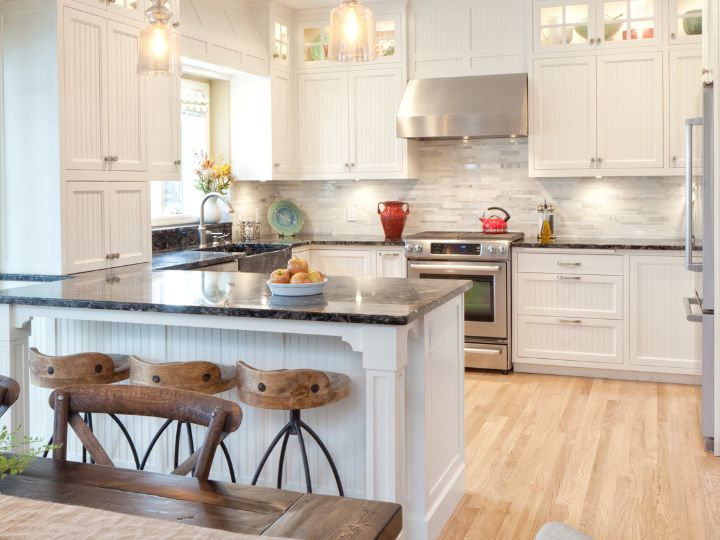
How to Secure Financing for Grand Rapids Home Projects

Taking on home improvement projects is an exciting way to enhance your living space, increase your home’s value, and improve its functionality. Whether you’re planning a kitchen remodel, a new roof installation, or a full-scale addition, these upgrades often come with significant costs. For many homeowners in Grand Rapids, securing financing for home projects is a critical step in making their renovation dreams a reality.
In this guide, we’ll explore various financing options available to homeowners in Grand Rapids, provide tips on how to choose the best one for your specific project, and help you navigate the process of securing financing successfully.
Key Takeaways:
- There are multiple financing options available for Grand Rapids home projects, including home equity loans, personal loans, and credit cards.
- Local government grants or incentive programs may also provide financial support, particularly for energy-efficient or sustainable home upgrades.
- Your credit score, project cost, and financial situation play a critical role in determining which financing option is the most suitable for your needs.
- Securing the right financing can help you improve your home while managing costs effectively.
Understanding the Costs of Home Improvement Projects
Before you explore financing options, it's essential to understand the potential costs of your home improvement project. Whether you're planning to update a single room or remodel multiple areas of your home, the costs will vary based on the scope of the project, the materials you use, and the labor involved.
Some common Grand Rapids home improvement projects and their average costs include:
- Kitchen remodel: $15,000 to $50,000
- Bathroom remodel: $10,000 to $30,000
- Roof replacement: $5,000 to $15,000
- Home addition: $20,000 to $100,000
- Landscaping or outdoor improvements: $2,500 to $10,000
Understanding these costs will help you determine how much financing you might need and how to approach different financing options.
Financing Options for Your Grand Rapids Home Project
There are several ways to secure financing for your home improvement project in Grand Rapids. The key is to evaluate each option based on your project’s scope, your financial situation, and your long-term goals. Let’s break down the most common options available:
1. Home Equity Loan
A home equity loan, often referred to as a second mortgage, allows you to borrow against the equity in your home. This option provides a lump sum that can be used for home improvement projects, making it an attractive choice for larger renovations.
- Pros: Low, fixed interest rates, predictable monthly payments, and tax-deductible interest (in some cases).
- Cons: Your home serves as collateral, so if you default on payments, you risk losing your property.
To qualify for a home equity loan, you’ll need to have built significant equity in your home, typically around 15% to 20%. This option is ideal for homeowners who need a large amount of money upfront to fund major projects like a kitchen remodel or home addition.
2. Home Equity Line of Credit (HELOC)
A HELOC functions like a credit card, where you borrow against the equity in your home but only draw funds as needed. This is a great option for homeowners who want flexibility in financing their projects, especially if the renovation will be completed in phases.
- Pros: Flexibility to borrow as needed, typically lower interest rates, and you only pay interest on the amount borrowed.
- Cons: Variable interest rates, which can fluctuate over time, and your home is used as collateral.
A HELOC is a practical solution for homeowners who expect ongoing costs throughout the renovation process. However, it’s important to keep an eye on interest rate fluctuations, as these could increase your long-term repayment costs.
3. Personal Loan
A personal loan is an unsecured loan that can be used for home improvement projects without putting your home up as collateral. This makes it an appealing option for homeowners who don’t want to tap into their home’s equity.
- Pros: No collateral required, fast approval, and fixed interest rates.
- Cons: Higher interest rates compared to secured loans, shorter repayment periods, and more stringent credit requirements.
If you have a solid credit score and need quick access to funds, a personal loan could be a suitable option. However, due to the higher interest rates associated with unsecured loans, it’s important to budget carefully and ensure that you can afford the monthly payments.
4. Credit Cards
While not always the best option for large projects, credit cards can be a convenient way to cover smaller home improvement costs or to supplement other financing. Many credit cards offer 0% APR introductory periods, which can be beneficial if you plan to pay off the balance quickly.
- Pros: Quick access to funds, no collateral required, and the potential for rewards or cashback benefits.
- Cons: High interest rates once the promotional period ends and the risk of accumulating high-interest debt.
Credit cards should be used with caution, especially for larger projects. They are best suited for smaller expenses or as a short-term solution when combined with another financing method.
5. FHA 203(k) Loan
The Federal Housing Administration (FHA) offers 203(k) loans to help homeowners finance repairs or upgrades to their homes. This option is particularly useful if you’re purchasing a fixer-upper or if your home requires significant renovations.
- Pros: Low down payment requirements, allows you to combine purchase and renovation costs into a single loan.
- Cons: Lengthy approval process, strict guidelines, and government involvement.
FHA 203(k) loans are an excellent option for homeowners looking to finance both the purchase and renovation of a home, but the approval process can be lengthy, and not all home projects will qualify.

6. Contractor Financing
Many contractors in Grand Rapids offer in-house financing options to help clients fund their home improvement projects. This can be a convenient option because it often comes with promotional offers, such as low or zero-interest rates for a certain period.
- Pros: Convenient, promotional interest rates, and simplified application process.
- Cons: Limited loan amounts, potential for higher interest rates after the promotional period, and may tie you to specific contractors.
If you’re working with a reputable contractor who offers financing, this can be an easy and affordable way to fund your project. Just be sure to read the fine print to avoid any surprises once the promotional period ends.
7. Government Grants and Incentive Programs
In some cases, Grand Rapids homeowners may qualify for government grants or incentive programs, particularly if their home improvement projects involve energy efficiency, sustainability, or accessibility upgrades. Local and state programs may offer financial assistance for projects like installing solar panels, updating insulation, or improving home accessibility for people with disabilities.
- Pros: Free or low-cost funding, promotes energy-efficient home improvements.
- Cons: Competitive application process, limited availability, and restricted to specific types of projects.
Exploring local and state government grants can help reduce the overall cost of your home improvement project. Be sure to research the eligibility requirements and apply early to improve your chances of receiving funding.
How to Choose the Right Financing Option
With several financing options available, it can be overwhelming to decide which one is the best fit for your home improvement project. Here are some key factors to consider when making your decision:
1. Evaluate Your Credit Score
Your credit score plays a significant role in determining the financing options available to you, as well as the interest rates you’ll be offered. A higher credit score can open the door to lower interest rates and better loan terms, while a lower score may limit your options or result in higher costs.
If your credit score is less than ideal, it might be worth taking some time to improve it before applying for a loan. This could save you thousands of dollars over the life of the loan.
2. Consider the Project Scope
The size and complexity of your home improvement project will influence which financing option makes the most sense. For example, if you’re taking on a major renovation like a home addition, a home equity loan or HELOC may be the best choice. For smaller projects like a bathroom remodel, a personal loan or credit card could suffice.
3. Compare Interest Rates and Loan Terms
It’s crucial to compare the interest rates and terms associated with each financing option. Lower interest rates can save you a significant amount of money over time, while favorable loan terms (such as longer repayment periods) can help you manage your monthly payments more easily.

4. Factor in Fees and Closing Costs
Be aware of any fees or closing costs associated with the financing option you choose. Home equity loans and HELOCs, for example, often come with closing costs similar to those of a mortgage. Make sure to factor these into your budget to avoid any surprises.
5. Consult with Financial Professionals
Before making a final decision, it’s always a good idea to consult with a financial advisor, your contractor, or your lender to discuss the best financing option for your specific situation. They can help you weigh the pros and cons of each option and guide you toward the most cost-effective solution.
FAQ Section
How can I improve my chances of securing financing for my home project?
Improving your credit score, ensuring you have a stable income, and minimizing existing debt can all increase your chances of securing favorable financing. It’s also helpful to have a detailed budget and plan for your home improvement project.
Can I use a personal loan for any home improvement project?
Yes, personal loans are flexible and can be used for a wide range of home improvement projects. However, they may come with higher interest rates compared to secured loans like home equity loans.
Are there specific grants available for energy-efficient home upgrades in Grand Rapids?
Yes, homeowners in Grand Rapids may qualify for local or state grants and incentive programs for energy-efficient upgrades, such as installing solar panels or improving insulation. Check with your local government for more information.
Conclusion: Financing Your Grand Rapids Home Project
Securing financing for home projects in Grand Rapids doesn’t have to be a daunting task. By exploring your options, comparing interest rates, and selecting the right financing method for your project, you can make your renovation dreams a reality without breaking the bank.
Whether you choose a home equity loan, a personal loan, or even a local government grant, understanding the financing landscape is the key to managing your home improvement costs effectively. With the right approach, you’ll be well on your way to transforming your Grand Rapids home into the space you’ve always envisioned.

.svg)
.svg)


